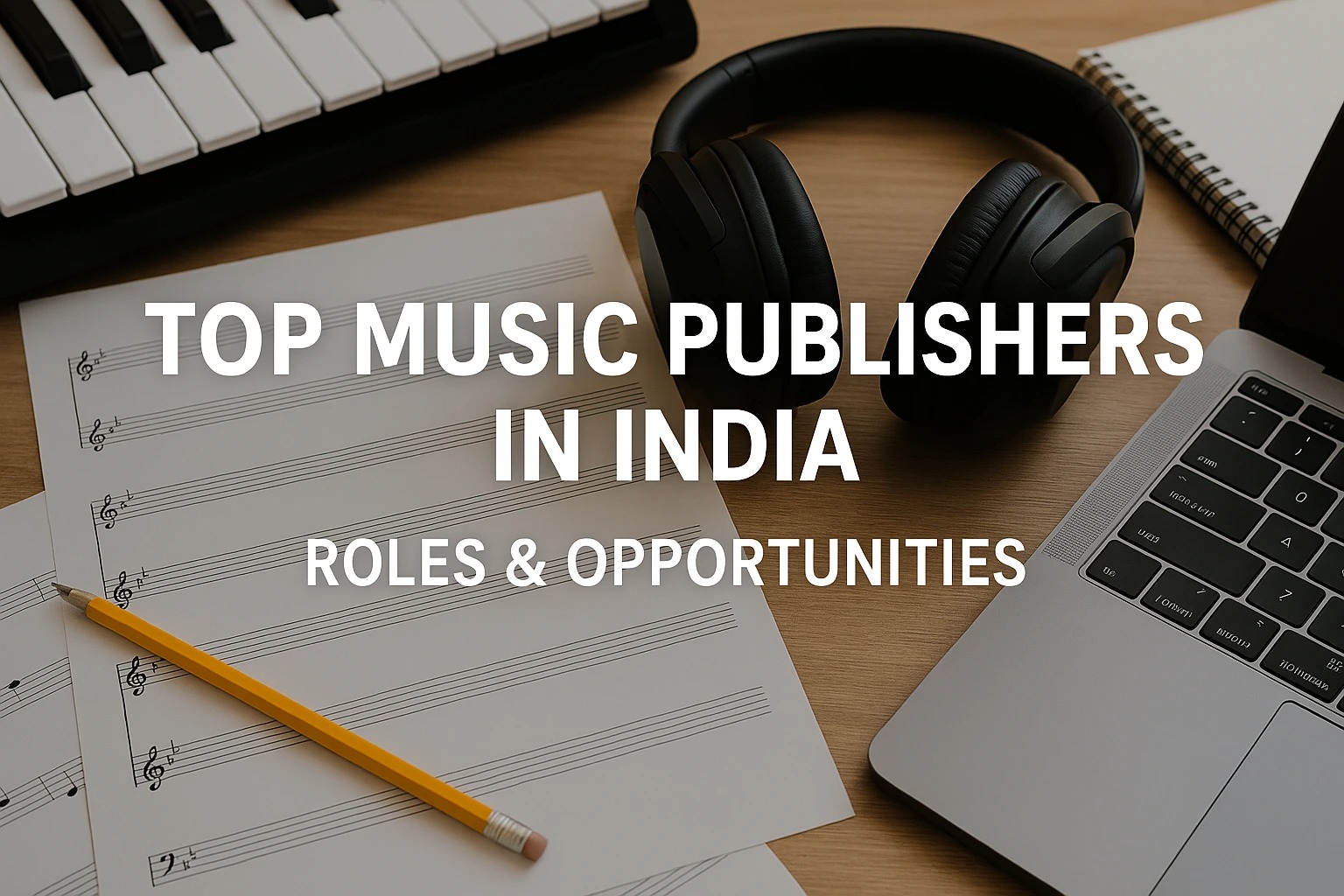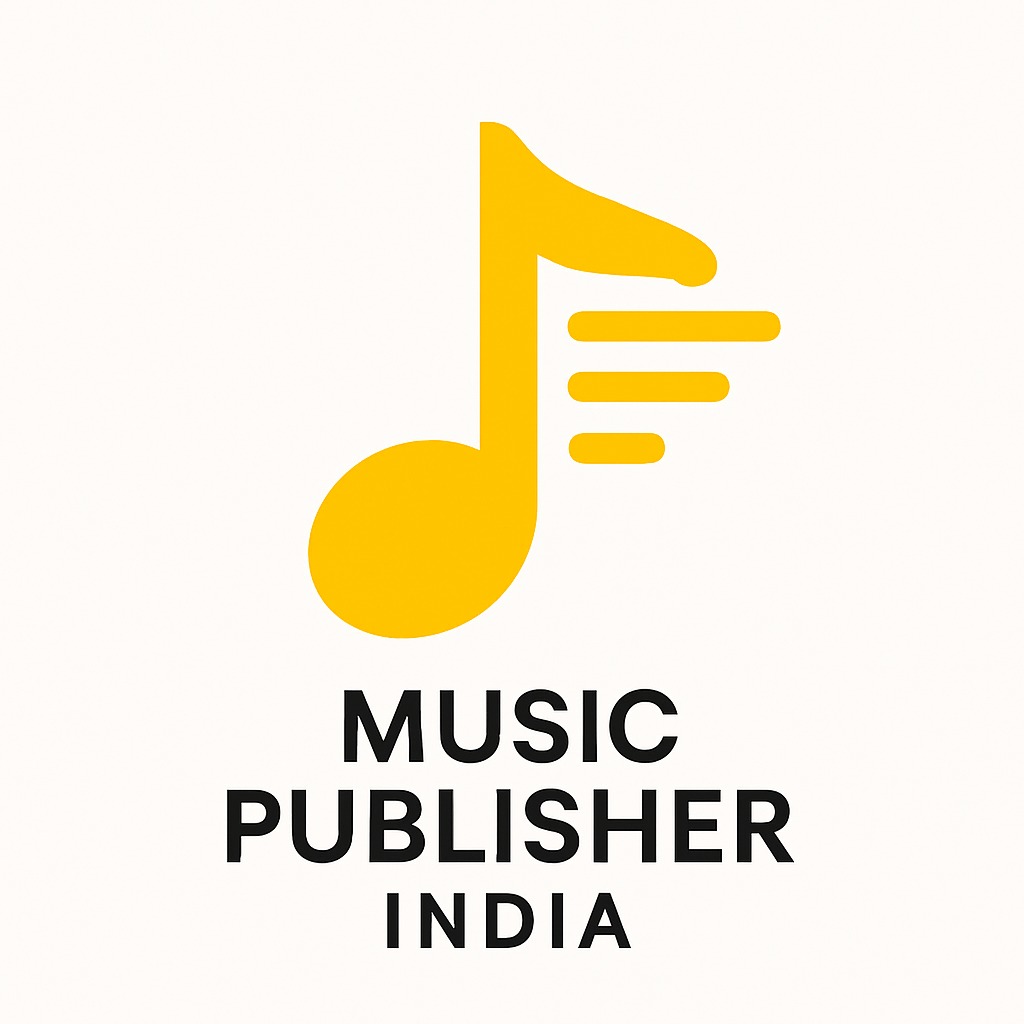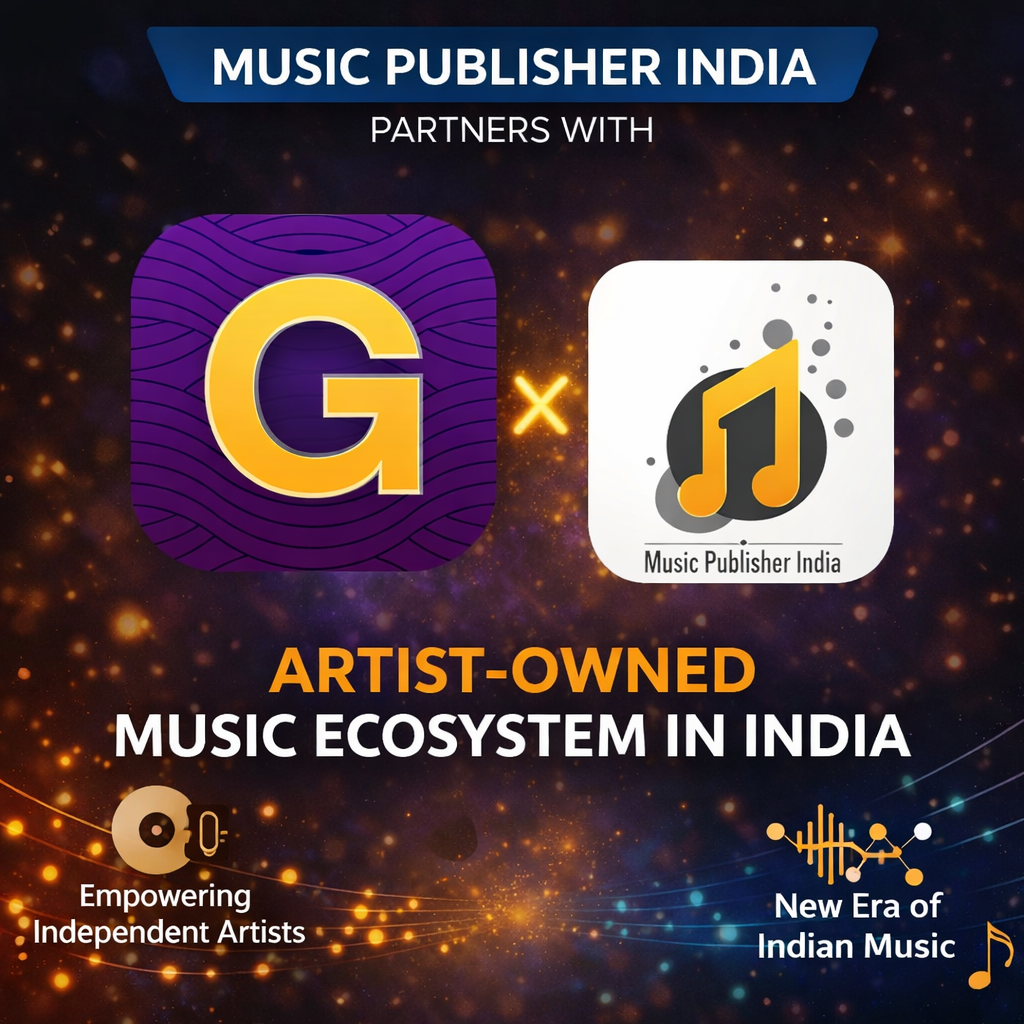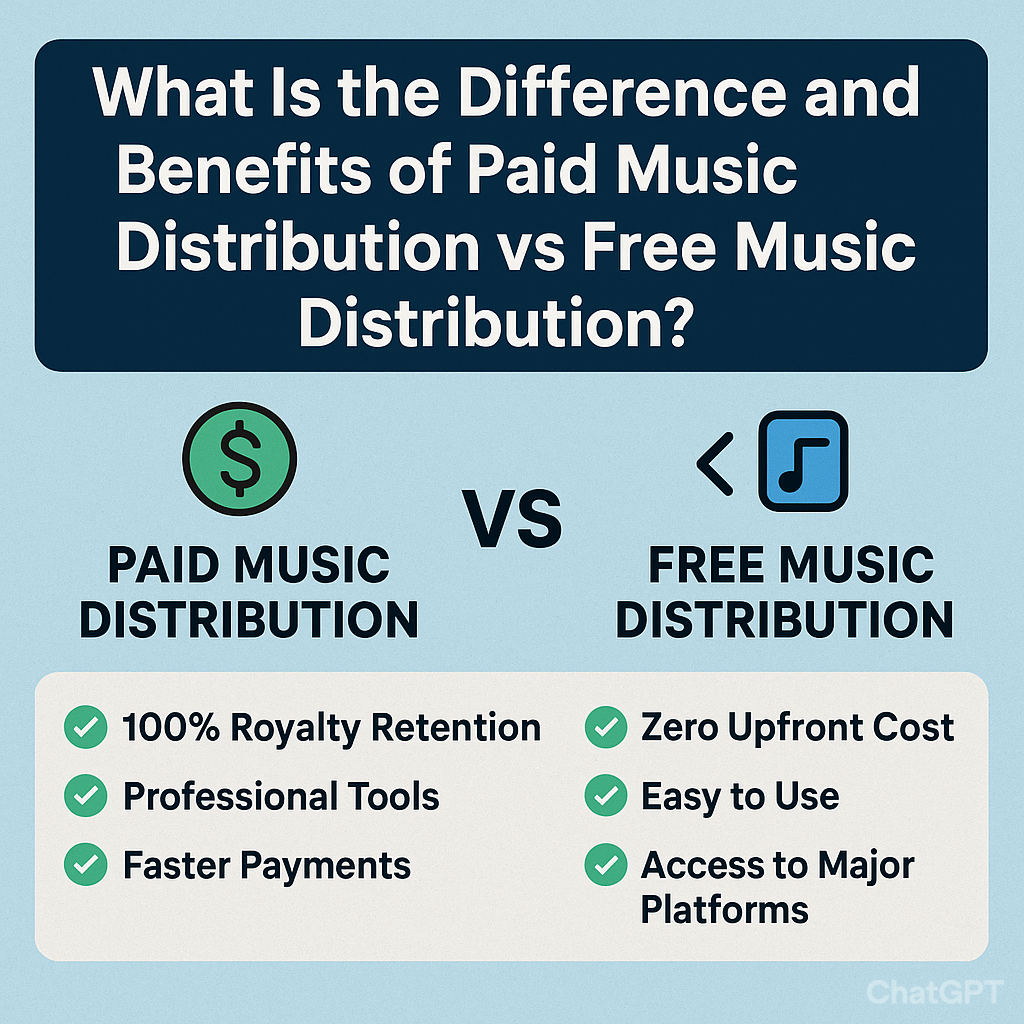
Guide to Music Publishers in India
Music Industry
The Indian music industry has seen rapid growth in recent years, driven by digital streaming, independent artists, and film music. While music labels often get the spotlight, music publishers are the unsung heroes who ensure creators get paid and their rights are protected. In this blog, we explore the role of music publishers in India, key players in the market, and the opportunities they offer to composers, lyricists, and producers.
What is a Music Publisher?
A music publisher is a company or individual that helps songwriters and composers earn money when their music is used commercially. This includes:
-
Licensing songs for films, TV, ads, and streaming
-
Collecting royalties from various platforms
-
Protecting copyright and ensuring legal use
-
Promoting songs to potential buyers or licensees
Publishers often act as business partners to artists, managing their musical works and ensuring long-term monetization.
Types of Music Royalties in India
To understand the value of music publishers, it's essential to know the kinds of royalties they manage:
-
Mechanical Royalties – Earned when music is sold, downloaded, or streamed.
-
Performance Royalties – Earned when music is played on radio, TV, live performances, etc.
-
Synchronization (Sync) Royalties – When music is used in films, ads, or games.
-
Print Royalties – From sheet music and lyrics publications.
Why Artists Need Music Publishers
Many independent artists, composers, and lyricists struggle with tracking royalties across multiple platforms. A publisher simplifies this by:
-
Registering the work with Performing Rights Organizations (PROs) like IPRS
-
Handling licensing deals and contracts
-
Fighting piracy and copyright infringement
-
Building connections with music supervisors and content creators
Music publishers are particularly helpful in India, where the market is complex and involves multiple languages, media formats, and legal regulations.
Top Music Publishers in India
India has both international and homegrown music publishers working across Bollywood, regional, and independent sectors.
1. T-Series Publishing
One of the largest music labels in India, T-Series also operates a publishing arm. They manage massive Bollywood catalogs and dominate YouTube streaming. T-Series owns rights to songs across multiple languages and platforms, often working directly with composers and lyricists.
2. Sony Music Publishing India
An Indian division of the global giant, Sony Music Publishing works with established and emerging talent. They handle sync licensing, royalty collection, and artist promotion, making them a trusted partner for many independent artists and film composers.
3. Saregama Publishing (RP Sanjiv Goenka Group)
Saregama holds the rights to thousands of classic songs from the golden era of Indian cinema. They are known for licensing old hits for movies, series, and ads. Their catalog is a goldmine for sync opportunities.
4. Times Music Publishing
Part of the Times Group, Times Music represents a wide variety of genres — devotional, indie, Bollywood, and regional. They also offer sync services and have partnered with global firms to distribute and monetize Indian music worldwide.
5. Zee Music Company
Zee Music has grown rapidly by associating with regional films and Bollywood projects. While primarily a label, they also work closely with publishers and composers to manage rights and royalties efficiently.
6. TuneCore India / Believe Music
TuneCore provides music distribution and publishing services for independent artists. Their publishing division helps musicians register songs, collect international royalties, and license music for sync deals.
7. Tips Industries Ltd.
Known for Bollywood hits from the 1990s and 2000s, Tips Music has a strong publishing division. They manage rights across multiple platforms and are active in licensing for OTT, films, and global distribution.
How to Sign with a Music Publisher in India
If you're an artist, composer, or lyricist, here's how you can approach a music publisher:
-
Build a Catalog: Publishers look for artists with original, high-quality music.
-
Get Your Works Registered: Register with IPRS or other collection societies.
-
Approach Relevant Publishers: Choose publishers that specialize in your genre or language.
-
Submit a Demo: Prepare a professional portfolio with links to your music, lyrics, and previous work.
-
Read Contracts Carefully: Understand revenue splits, ownership clauses, and licensing terms.
Benefits of Music Publishing for Independent Artists
-
Royalty Tracking: Publishers track plays on Spotify, YouTube, radio, TV, and OTT platforms.
-
Global Reach: With publishers like Sony or TuneCore, your music can earn internationally.
-
Legal Protection: Infringement is common; publishers help you protect your copyright.
-
Sync Licensing Opportunities: Many artists earn big through music placements in ads, films, or web series.
-
Career Support: Publishers often help you co-write, collaborate, or promote your music.
Challenges in the Indian Music Publishing Industry
Despite the growth, challenges remain:
-
Lack of awareness among indie artists about publishing rights
-
Unorganized sector with limited transparency
-
Piracy and unauthorized use of songs
-
Language and regional diversity, making standardization difficult
However, reforms by IPRS and newer digital-first platforms are improving the ecosystem.
Future of Music Publishing in India
India’s music publishing landscape is evolving with:
-
Increased digital royalty collections
-
OTT boom driving sync licensing demand
-
Global collaborations with artists and labels
-
Use of AI and blockchain for royalty tracking and copyright management
With the rise of non-film music, publishers now have a broader role in shaping artist careers beyond Bollywood.
Conclusion
Music publishers in India are becoming increasingly essential for anyone involved in music creation. Whether you're a seasoned Bollywood composer or a bedroom indie artist, partnering with a good publisher can significantly boost your earnings, protect your rights, and open up new revenue streams.
As the Indian music industry goes global, now is the right time to understand and leverage music publishing for long-term success.





